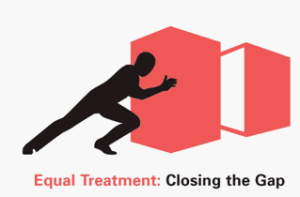Every year, the World Health Organization (WHO) organizes the mhGAP Forum as part of its annual partnership event on mental health. The mhGAP Forum is an informal group of Member States, intergovernmental and nongovernmental organizations, including UN agencies, international development agencies, philanthropic foundations, research institutes, universities and WHO collaborating centres, for coordinated action on the implementation of mhGAP. The mhGap is WHO’s flagship publication aimed at scaling up care for mental, neurological and substance use disorders.
WHO’s first global report on suicide prevention will be launched at this year’s annual event. This report will be the first of its kind with in-depth information about the global scenario of suicide, groups at risk of suicide and the ways in which the number of deaths from suicide can be prevented by action from the individual and collective levels. Along with the report, this year’s event is examining the ways to communicate mental health issues effectively and global strategies to advocate the implementation of WHO’s Comprehensive Mental Health Action Plan 2013 to 2020 through partnership.
Suicide is a leading global public health issue. Around the world, in every 40 seconds, there is one death because of suicide. In the last 45 years suicide rates have increased by 60% worldwide. According to WHO, “Suicide is now among the three leading causes of death among those aged 15 to 44 (male and female). Suicide attempts are up to 20 times more frequent than completed suicides”. Globally each year approximately one million people die from suicide. Although suicide rates have traditionally been highest amongst elderly males, rates among young people have been increasing to such an extent that they are now the group at highest risk in a third of all countries.
Mental health disorders (particularly depression and substance abuse) are associated with more than 90% of all cases of suicide. Kathryn Goetzke, the founder of the International Foundation for Research and Education on Depression (iFred) says, “over 350 million people around the world have depression, a treatable disease, yet less than 50% of those with depression are currently receiving treatment”. Ms. Goetzke stresses the importance of this year’s WHO mhGAP forum as being critical to draw global attention to the urgency in bridging the mental health treatment gap. Her organization iFred works to #endstigma, to ensure all those needing treatment feel comfortable getting help. She says, “iFred also believes that by rebranding with a focus on hope, business and individuals are going to be more inspired to donate and fund solutions for this debilitating disease”. With the goal of rebranding depression, iFred has started global campaigning using hashtags like #sharehope #rebranddepression #endstigma.
According to WHO research, the mental health treatment gap is unacceptably high across the world ranging from 50% to 98%. In rich countries as well, 50% to 60% of people who are believed to be in need of support do not seek any kind of help for their problem. This is a global shame that world governments must give attention. Right to quality mental health services is a fundamental human right. In this context, much work lies ahead for us towards creating #innovative mental health services which will attract and build the trust of users.
I believe this mhGAP Forum will build some #hope in this direction. As a participant at the Forum, Ms. Goetzke says that “iFred is thrilled to be participating in this year’s event at the World Health Organization, as this year’s focus directly fits to our new Schools for Hope program. We are inspired by the amount of work occurring globally in mental health, and admire Dr. Shekhar Saxena and his team in creation of the Global Mental Health Action Plan and its implementation advocacy around the world”. She further adds, “we are looking forward to hearing more from the WHO Director General Dr. Margaret Chan who plans to speak at the event this year.”
Mental health services are highly stigmatized—regardless of whether the country or society is rich or poor. As a result, people are demonized, and alienated from the entire social process. This is a major factor that discourages people from seeking help. We must aim to overcome this barrier, through shared learning, and move toward bridging the shocking mental health treatment gap.
A new article written by Jagannath Lamichhane




Speak Your Mind